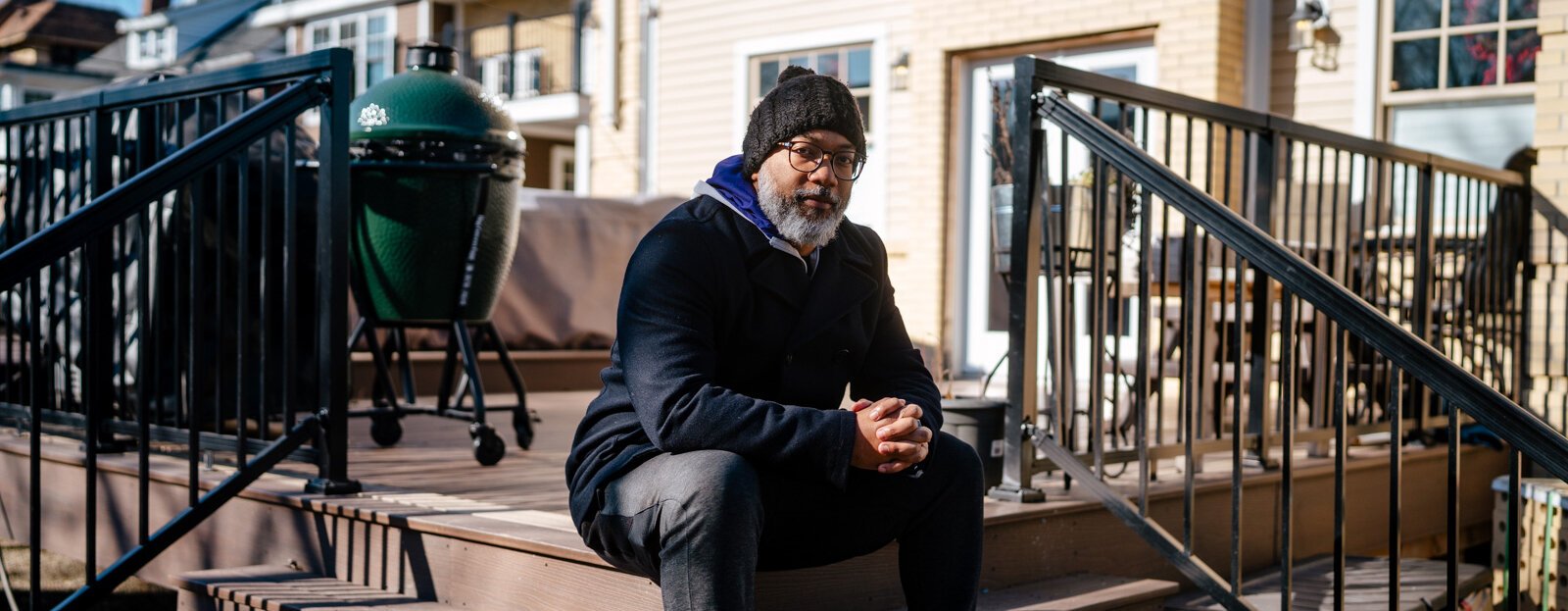
David Sands
Jan 25, 2022
What impact are minority developers having on Detroit's skyline?
Challenges and collaboration
While Pereira is just one in a handful of Latinos working in his field in the Motor City, there are many more minority developers in Detroit. Jason Jones of Tekton Development is part of that community and has been working to encourage more collaboration among like-minded BIPOC developers.
Early in his career Jones worked as a financial consultant in Chicago. The native Detroiter was drawn back to the Motor City in 2000 by an investment opportunity that involved rehabbing and selling single family homes. That work paid off, and Jones found that he really enjoyed it. So he dived into the development field full-time.
"Development is an extraordinary opportunity to really manifest change in people's lives," says Jones. "You literally get to change the landscape of the city in which you live. The key is to make sure you do it the right way to engage with the community and try to deliver a product that folks not only want to see, but are happy to live in and interact with."
Jones has been involved with numerous real estate companies since that time. In 2016, Jones founded Tekton Development, a company that specializes in developing multi-family and mixed-use projects. He currently serves as its principal developer. The company focuses its efforts in Detroit and the surrounding area, and has invested over $36 million in multifamily, land, and office developments in several states including North Carolina, Georgia, and Michigan.
Tekton recently finished a three-story condominium with a distinctly modern look at 4530 Commonwealth St. in Woodbridge, partnering with Dominion Property Group on the complex. Right now, the company is working on two other Woodbridge-based projects, a six-unit complex and 65-unit condo called the Scripps District being built in partnership with Civic Companies and Robertson Brothers Homes.
Reflecting on the broader impact of African-American developers in the city, Jones says it's understated, relative to population demographics, but “certainly larger than what you would find in some other major cities across the country".
Detroit's minority development community operates on a variety of different scales. On the one hand, there are well-established figures like Jerome Morgan of Morgan Development, a multi-billion dollar developer firm specializing in larger homes, and Melvin Washington, founder and president of the Phoenix Group Companies, which focuses on affordable and market rate housing.
Then, Jones says there is "a significant cadre" of Black developers operating a little below that level who are involved with firms like City Growth Partners, Century Partners, Queen Lillian, and Develop Detroit.
Queen Lillian, for example, has been partnering with The Platform on to build a five-story $60 million project in Midtown. And Develop Detroit, headed by Dennis Archer Jr., has been active with single family homes and multi-use complexes like the Sugar Hill Mixed Use Development in Midtown.
There are a substantial number of minority developers involved with medium-sized projects ranging anywhere between $3 million and $25 million, according to Jones. However, beyond that point there are almost no Black developers involved with the city's largest developments, a situation he attributes to a lack of access to capital.
Despite that challenge, the efforts of Black developers in the city have been bolstered in recent years by the emergence of new industry groups like Building Community Value (BCV) and the Real Estate Association of Developers (READ). BCV is a nonprofit headed by Chase Cantrell dedicated to helping newcomers learn the ins-and-outs of small-scale real estate development. READ, co-founded in Detroit by Jones, aims to be a collaborative organization where more experienced minority developers can work together in a way that benefits both them and the community at large.
"Our goal is to make sure that Black developers can make those investments and then pay them forward through their hiring practices all the way into the community," says Jones.
